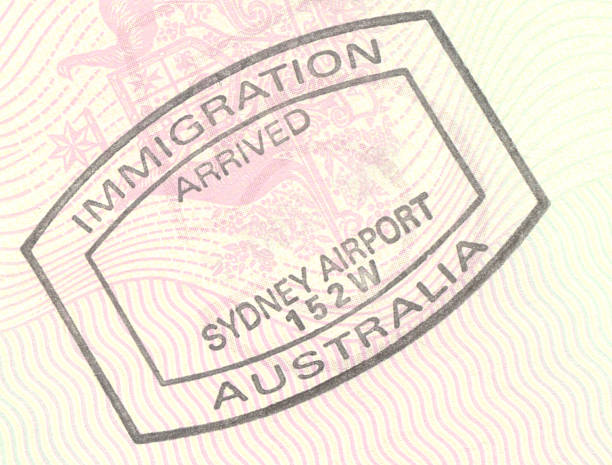What is a valid visa application? For a visa application to be a valid, it must fulfil certain requirements. The Migration Act (1958) outlines important points in relation to making a valid visa application.
In this article, we will discuss these points under the Migration Act. Specifically, we will outline the following Sections:
- Section 46
- Section 46AA
- Section 46A
Section 46: Valid Visa Application
This Section specifies the conditions that one must meet for an application to be valid. These conditions are in place to ensure that the visa application process adheres to the law and regulations.
- Visa Class and Criteria: A visa application must be for a specific class of visa as specified in the application. Additionally, it must meet the criteria and requirements prescribed under the law. This means that an applicant must apply for the correct type of visa. They must also fulfil the necessary conditions, such as providing required documentation and meeting eligibility criteria.
- Fees and Charges: The Section also addresses the financial aspect of visa applications. The applicant must pay the visa application charge at the time of submitting the application as the regulations mandate. This ensures that applicants meet the financial obligations associated with their visa request.
Additional Provisions
- Invalid Applications: An application should not be invalid under any provision of the law. This means that applicants need to ensure that they adhere to all legal requirements. Moreover, their applications must be free from any defects that would make them invalid.
- Unique Conditions: Certain visa applications may have unique conditions that make them subject to different criteria, separate from general regulations. For example, conditions for:
- special category visas,
- permanent protection visas,
- temporary protection visas,
- safe haven enterprise visas, and
- others are not subject to the same criteria as other visa classes. This acknowledges the diversity of visa types and their specific requirements.
- Ministerial Discretion: This Section also mentions the role of the Minister in certain situations. The Minister may have the discretion to waive certain conditions or requirements, but this is not applicable to all cases.
- Prescribed Criteria: The regulations may prescribe specific criteria that must be satisfied for an application for a visa of a specified class to be considered valid. These criteria can cover a range of factors, including the circumstances for application, the application process, and the applicant’s location when making the application.
By meeting these criteria, applicants can navigate the immigration process in compliance with the law and regulations, increasing their chances of a successful visa application. The Section also acknowledges that certain visa classes may have unique criteria and considerations that apply to them.
Section 46AA: Visa Applications, and the Grant of Visas, for Some Act-based Visas
This Section pertains to visa applications and the granting of visas for specific classes of visas.
- Covered Visa Classes: This section applies to various classes of visas, which include special category visas, permanent protection visas, temporary protection visas, safe haven enterprise visas, bridging visas, temporary safe haven visas, and maritime crew visas. These classes of visas are subject to the regulations mentioned in this section.
- Invalid Applications without Prescribed Criteria: An application for a visa in the covered classes is considered invalid if, at the time of application, both of the following conditions are met:
- There are no regulations in effect that prescribe criteria for a valid application of that specific class.
- There are no regulations in effect that prescribe criteria for the granting of a visa in that specific class.
It’s important to note that this subsection does not apply if there are regulations in place that prescribe criteria for either a valid application or the granting of a visa, or both, for that specific class.
Other Provisions
- Exclusion of General Criteria: The criteria mentioned in the previous subsection (2) do not encompass criteria that are generally applicable to all visa applications or the granting of visas. This means that the specific criteria for these visa classes are distinct and not part of the general criteria.
- Criteria in the Act and Regulations: If regulations are in effect that prescribe criteria for a visa in a class covered by this section, there are specific requirements that must be met:
- An application for the visa is invalid unless it satisfies both the criteria specified in the Act and those prescribed by regulation for applications in that class.
- The visa cannot be granted unless the application meets both the criteria specified in the Act and those prescribed by regulation for the granting of visas in that class.

Section 46A: Visa Application by Unauthorised Maritime Arrival
This Section outlines the criteria and processes related to visa applications for unauthorised maritime arrivals, with the following key points:
- Invalid Applications: An application for a visa by an unauthorised maritime arrival is not considered valid if the applicant is in Australia and is either an unlawful non-citizen or holds specific types of visas, including bridging visas, temporary protection visas, or other temporary visas as prescribed.
- Exceptions: Subsection 1 does not apply to an application if the applicant holds a safe haven enterprise visa or is a lawful non-citizen who has ever held such a visa, and the application is for a visa prescribed for this purpose, subject to satisfying certain employment, educational, or social security benefit requirements.
- Ministerial Discretion: The Minister may, under certain circumstances and if it is deemed in the public interest, determine that subsection 1 does not apply to an application for a specified class of visa by an unauthorised maritime arrival. These determinations may have specified time limits and can vary or be revoked by the Minister if it is in the public interest.
Other Provisions
- Ministerial Authority: The authority to make, vary, or revoke these determinations lies solely with the Minister personally.
- Reporting to Parliament: If the Minister makes, varies, or revokes a determination, a statement must be presented to each House of the Parliament. This statement should include details of the determination. It should also include the reasons behind it. Moreover, it must not contain information that could identify the unauthorised maritime arrival or any other individuals involved.
- Publication Timing: The statement must be presented within a specific timeframe. This will depend on when the determination is made during the year.
- No Duty to Consider Request: The Minister has no obligation to consider exercising this authority based on requests from the unauthorised maritime arrival or any other individuals or under any other circumstances.
Importance of Seeking Legal Advice
Applicants who are looking to make valid visa applications must reach out to immigration lawyers for assistance and guidance. Contact our team today.
